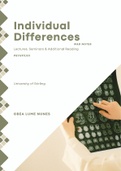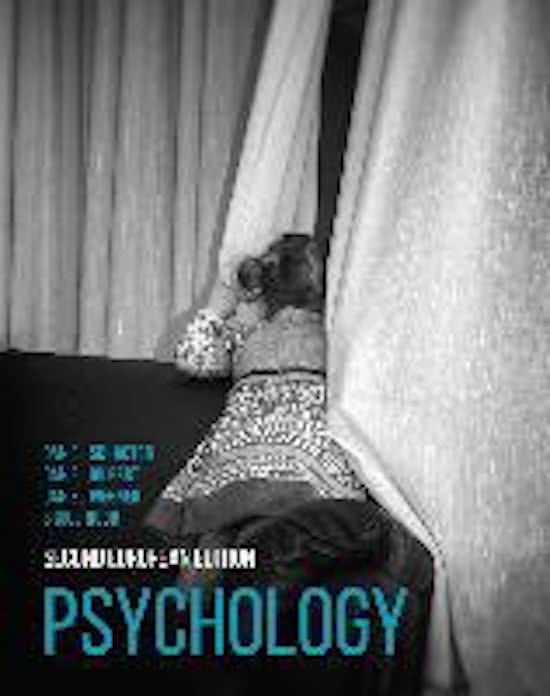Summary
Summary (iPad) Introductory Psychology I - Individual Differences
- Course
- Institution
- Book
iPad notes of the topic of Individual Differences from the Introductory Psychology I module. Given by Dr. Elaine Cameron at The University of Stirling in the autumn semester of 2020. Based on the lectures, the book, and the seminars. Written by Bea Lume Nunes. Note: I passed with a first using thes...
[Show more]




